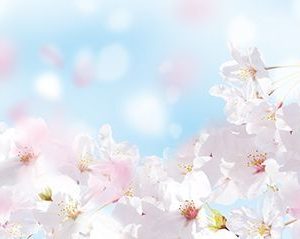- Recognizing the Signs of Hypothyroidism
- 10 Strategies to Overcome Insomnia
- Could Artificial Sweeteners Be Aging the Brain Faster?
- Techniques for Soothing Your Nervous System
- Does the Water in Your House Smell Funny? Here’s Why
- Can a Daily Dose of Apple Cider Vinegar Actually Aid Weight Loss?
- 6 Health Beverages That Can Actually Spike Your Blood Sugar
- Treatment Options for Social Anxiety Disorder
- Understanding the Connection Between Anxiety and Depression
- How Daily Prunes Can Influence Cholesterol and Inflammation
Warmer Climate, More Pollen, Worse Allergies: How to Fight Back

Climate change has made North America’s pollen season longer and more severe, but there are ways to reduce your allergy misery, according to the American College of Allergy, Asthma and Immunology (ACAAI).
The best way to deal with worsening pollen seasons is to get ahead of them.
“If you know it’s likely that your allergy symptoms will arrive earlier in the spring or fall season, start taking your medications sooner,” ACAAI President Dr. Luz Fonacier said in a college news release.
“If you begin your medications two to three weeks before your symptoms begin in earnest, chances are your suffering will be lessened,” Fonacier said.
Pollen levels tend to be higher from trees in the spring, grasses in the summer and weeds in the fall, but may vary depending on weather conditions and where you live.
Along with starting to take your allergy medications early, the ACAAI recommends other ways to control your symptoms:
- Keep windows closed during pollen season, especially during the day, and use air conditioning whenever possible.
- Know which pollens you are sensitive to and then check pollen counts. In spring and summer — tree and grass pollen season — levels are highest in the evening. In late summer and early fall — ragweed pollen season — levels are highest in the morning.
- Take a shower, wash your hair and change clothing after working or playing outdoors.
- Wear sunglasses and a hat outside to keep pollen out of eyes and hair. Also, along with protecting you against COVID-19, wearing a face mask could provide a barrier against pollen.
If you feel like your fall and spring allergies are getting worse each year, you are probably right. If staying indoors during these times of year and over-the-counter allergy medications are not helping control your symptoms, consult an allergist, Fonacier recommended.
More information
The American Academy of Pediatrics has tips for controlling your child’s seasonal allergies.
SOURCE: American College of Allergy, Asthma and Immunology, news release, April 21, 2021
Source: HealthDay
Copyright © 2026 HealthDay. All rights reserved.










